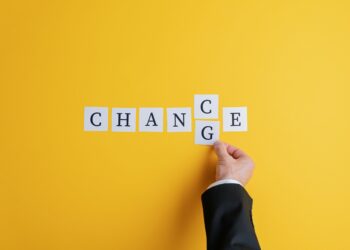How should I begin this article? Maybe by telling you that this question is especially the one many environments wonder about before launching their own transformation. This is also the reason why nothing truly happens until it becomes too painful to ignore.
Unfortunately, the more painful it is, the harder easing the pain will be.
Well, this is, to me, the same with climate change and the widening gaps in our society: change doesn’t happen right away when the dog barks, it comes when we see and feel concretely the looming danger.
That being said, whatever our business model, whether it is profit or nonprofit, our world is moving faster and faster, and being able to adapt to it is the challenge of every structure. Many of us will talk about a “VUCA” world, since, today more than ever, our environments are:
- Volatile: Rapid changes, hard to predict and without defined trend nor structure,
- Uncertain: disruptive changes are frequent and the past experiences are not great predictors of the future anymore,
- Complex: evolutions are more complex with intertwined technological, societal, geopolitical and environmental unknown aspects
- Ambiguous: there is scarcer clarity on what is real or true, actions and projects’ impacts are harder to measure
Today, more than ever, joining our forces is more than a great option, it’s a necessity to align with a common responsibility toward our end-users: the citizens of the world.
x
Wemanity’s vision is to change the world of working through Agile, innovation, and cooperation… and this world includes every dimension of the workforce we are part of as citizens, whatever the business model tackled: Corporates, CSR services, NGOs, and, social and solidarity-driven economy. Rings a bell?
First, NGOs do face the same challenges as startups:
- They have a limited budget, their structure relies on a limited number of people committed 100% of their time (volunteering is not being committed full time), and just like startups, they are supposed to have a bigger impact with fewer means (frugal innovation)
- Today, 70% of NGOs don’t have any digital strategy: most of them have a website, which is unfortunately not enough to remain competitive in the impact they want to make in a constantly connected world. Even if some of them are at the early stage of their reflection, adopting an agile way of working with a fully digital track is becoming a sine qua noncondition to ensure their durability.
- Thus, as agents of change, our responsibility is to guide them through their project management practices to trigger reactivity, adaptability, and continuous improvement in the fast delivery they are expected to launch.
Second, CSRs, like any department in the company, are expected to adapt to change with the organization…if not already done upfront.
Indeed, corporates can be supported by great CSR consulting companies to implement the right measures adapted to their field and causes: They can bring their expertise to focus on the “why” a CSR and the “what” to do with it.
However, when it comes to thinking about the “how”, these changes should be done at the organizational, cultural, and technological scale at a fast pace to lead by example the whole company. Thus, working iteratively, with a “fail fast & succeed faster” attitude, through cooperation & team engagement. Here, Agile project management turns out to be the right complementarity.
As for social and solidarity-driven companies, their high attractiveness promises unprecedented quantitative growth in the coming years: How to pass from 10 to 1000 employees at a fast pace without sacrificing the triple constraint (quality, time, and budget)? This will be the main challenge.
Key figures? A survey launched by Maddyplay shows that 62% of young Frenchies aged between 15 and 25 wouldn’t like to start their career in a big corporation, and would rather start in a job that fits their passion and intrinsic values in a “contributive job” (42%).
The ability to remain competitive with constant innovation will be a key success factor for those environments… and additional factors.
Indeed, their ability to scale their strategy model will be the only condition of their durability.
How to jump successfully from 10 to 100 employees, then from 100 to 1000? Which strategy suits your model? Here again, support is needed to both scale the company as well as its impact to ensure reactivity.
Wemanity thrives to share its experience as a scaled startup, its expertise as a change agent, and its commitment to support contributing companies in their search for impact. That’s why we launched #WeImpact, our philanthropy (or CSR) program.
Want to know more ? Contact us: mperchet@wemanity.com
x
Alone we go faster, together we go further.
WeImpact












